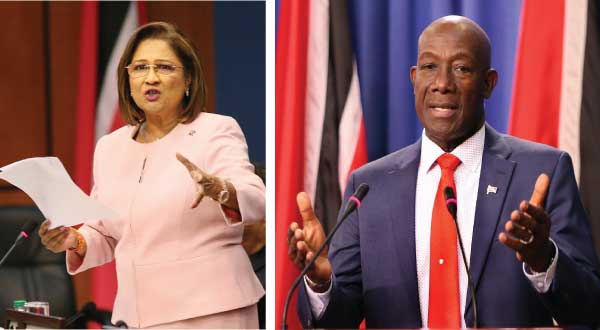“Reposted from Trinidad and Tobago Guardians”
The following is an official statement issued by the North American Caribbean Teachers Association (NACTA), concerning its latest tracking opinion poll in the run-up to the 2020 General Elections in Trinidad and Tobago…
POLL: NO THIRD PARTY THREAT IN SAFE SEATS IN SPITE OF UNPOPULAR NOMINEES
Although supporters of both major parties, PNM and UNC, are displeased with candidate selection in several of the so-called ‘safe seats’ in their heartland, neither party is under threat of losing any of them to challengers or threats posed by the entry of third or minor parties. However, marginal seats could be impacted by the entry of third parties enabling one of the major parties to win with less than a majority of the votes.
This is one finding of the ongoing opinion tracking poll of voters conducted by NACTA. Both PNM and UNC go into the elections with 15 safe seats each in Trinidad and nine marginal seats; Tobago is not polled.
The poll finds widespread dissatisfaction and disappointment with candidate selection in some safe seats that could see a lower than usual turnout impacting on the so-called ‘marginal seats’ that border them.
Several nominees in ‘safe’ seats, more of them in UNC strongholds than in PNM strongholds, do not find widespread favour among voters in their constituencies and nationally. Voters say some are not “parliamentary material”. Many voters are turned off, and many traditional supporters say they will not vote because they do not like some of the nominees.
Voters are irate with unpopular and unknown nominees being foisted upon them and of ‘carpetbagging’, nominees not living or working in or near the constituency or even known by voters. Some of the nominees have extremely high negatives running in the 70th percentile and higher. Voters have utmost disdain for some of them.
The poll finds both major parties are experiencing disgruntlement and internal rebellion among voters in their rejection of likeable incumbents and / or in the selection of challengers in some marginals and safe seats. This could put ‘pressure’ on a party’s nominee say in Moruga / Tableland, Tunapuna, St. Joseph, Barataria, Chaguanas East, Pointe-A-Pierre, and Toco / Sangre Grande—either because of unpopular selections in the seats themselves, or in neighbouring constituencies where lower than normal turnout is projected. The expected low turnout in some safe (UNC controlled) seats could have a ripple effect in the marginals, shaping their outcome.
The poll also finds that voters are very angry for being ‘under-serviced’ and neglected for decades in some constituencies.
There are more complaints in the opposition-held than in incumbent safe seats. In the university town of St. Augustine, for example, not the least among several ‘safe’ constituencies, voters are extremely upset with what they describe as ‘neglect’ and ‘abandonment’ by elected representatives. Many older voters say that over the last forty years, their best period of parliamentary service was between 2007 and 2010 when the seat was held by Vasanth Bharath. Voters have virtually nothing positive to say about the representation of John Humphrey, Gerald Yetming, Winston Dookeran, and Prakash Ramadhar, all of whom held the seat at different times, since 1981.
In safe seats, as St. Augustine illustrates, parliamentarians tend to hardly service their constituents. And no matter the kind of representation by the incumbent party or the quality (popularity and likability) of the challenger, the reigning party is likely to retain safe seats where any ‘crapaud’ is accepted.
Not surprisingly, the poll finds that independent or third party candidates do not find much favour among voters in this two party political system. Thus, as an illustrative example, the well-known Carolyn Seepersad Bachan and Inshan Ishmael—and any prospective Patriotic Front candidate—are not getting traction at this time to seriously threaten the UNC’s hold on St. Augustine. But in neighbouring Tunapuna and St. Joseph, third party entry could hurt the UNC’s prospect where its candidate is closing the huge electoral gap of 2015.
Third party candidates could also impact the outcome in the marginals of Barataria, Pointe-A-Pierre, and Chaguanas East where close contests are forecast. With the elections four weeks away, the outcome in several of these seats is up in the air.







